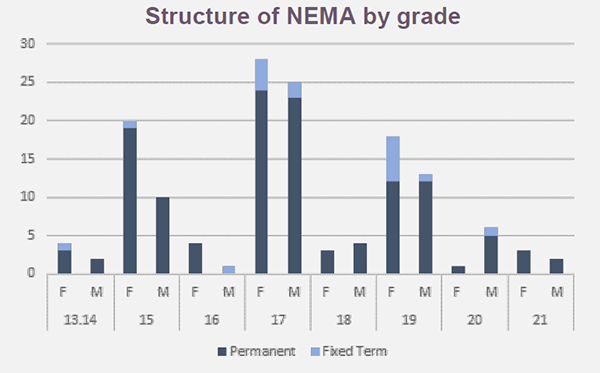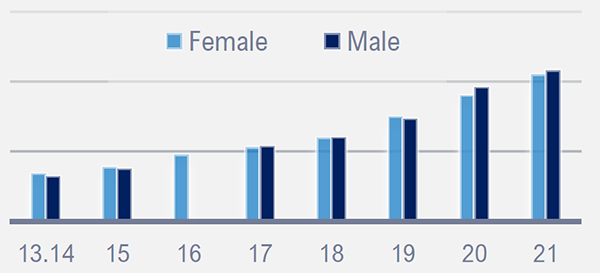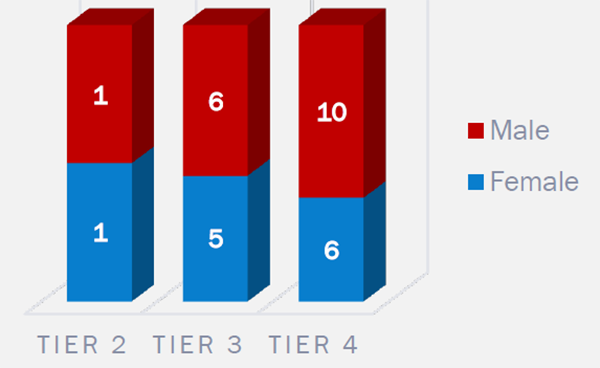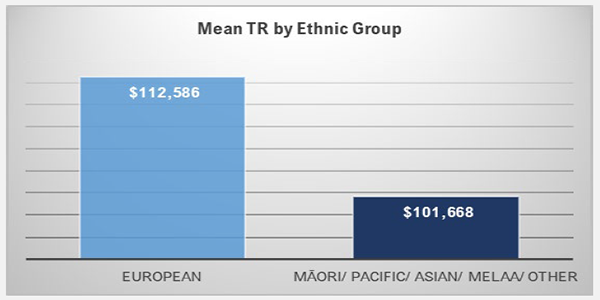Integrating diversity and inclusion is a key component for our organisational success - it helps NEMA improve our services to the government and people of New Zealand, and to attract and retain talented employees.
Formats
NEMA 2022-2023 Kia Toipoto Action Plan#
Integrating diversity and inclusion is a key component for our organisational success – it helps NEMA improve our services to the government and people of New Zealand, and to attract and retain talented employees.
About NEMA#
- NEMA is the Government lead for emergency management and is a departmental agency hosted by DPMC.
- Since 2019 when NEMA became a departmental agency we have grown exponentially from 56 staff to having a headcount of 146 staff as at June 2022. 128 perm and 18 fixed-term.
- NEMA’s gender pay gap has improved by 6.4% within the last year
- GPG June 2021: 16.2%
- GPG June 2022: 9.8%
- As a public service agency, NEMA values diversity and inclusion and are making intentional actions to make our workforce more reflective of the diversity of Aotearoa New Zealand and the communities we serve.
- NEMA is a small agency where changes in staffing can cause data volatility within grades and across the organisation.
- Key focus areas for NEMA will be increasing the representation of women and ethnic employees in higher pay grades across NEMA through a focus on recruitment, retention and internal progression.
- This is the second year NEMA has developed a Kia Toipoto action plan separately from DPMC which means that there are limited comparisons to previous years’ data.
What does our data tell us?#
- NEMA’s gender pay gap primarily continues to be driven by occupational segregation. The emergency management field has specialised roles dominated by males, which creates a gender imbalance in NEMA’s hiring pool and work force.
- Women are over-represented in lower paid bands and roles in the organisation, and under-represented in higher paid bands and roles.
- NEMA does not have difficulty attracting women – 55% of our workforce is female – and 37.5% of our team leader cohort is female. The challenge is most of our women are in support roles as opposed to leadership or appointed at a higher position in range in the higher bands.
- Offboarding – Nearly 71% of the permanent employees (17 female and 7 males) who left last year were females, and of that group, 65% of them has less then two years experience.
- The GPG for new starters in 2021-2022 was 0.9%, significantly lower than the overall NEMA Mean GPG of 9.8%. Average starting total remuneration figure (as FTE) was $104,704 for men compared to $103,713 for female. From 74 new hires:
- NEMA’s gender pay gap has improved (down 6.4%) within the last year with the implementation of the 24/7 MAR function seeing an increased number of men moving into roles in lower grades (Grade 15 and 17) which has assisted to balance the number of men in higher grade roles (grade 20 and above) .
- NEMA currently has low representation of Māori relative to the communities that we serve (5% versus 16.5% of the NZ population). We also have low representation of Asian people (5% relative to 15.1% in the population) and other ethnic groups.
NEMA Data Summary as at June 2022#
- GPG Mean: 9.8%
- GPG Median: 5.4%.
NEMA Demographics#

By employee type#
| Employee Type | Mean Total REM | ||
|---|---|---|---|
| Male | Female | % Gap | |
| Permanent | $122,705 | $110,277 | 10.1 |
| Fixed Term | $135,360 | $120,053 | 11.3 |
| Total | $128,873 | $111,725 | 9.8 |
| Men are in roles that on average are in higher grades and paid more than women. | |||
By pay band#
(Permanent employees only)
Grade 20 and above are predominantly male with 42% at Grade 20, a GPG of 10.10%.

Gender balanced leadership#

Women occupied 41% of all People Leader roles (12 of 29) and 46% of T2 and T3.
In 2020-21 39% of women occupied People Leader roles (9 of 23).
Ethnicity#
As at June 2022 NEMA has 116 European staff and 28 Māori/ Pacific/ Asian/ MELAA/ Other. NEMA continues to focus on expanding our ethnicity footprint with a key area looking at ways to improve our recruitment and retention of ethnically diverse candidates and staff. While the changes we have made to increasing our attraction of ethnically diverse candidates has improved, our data shows that it is not always flowing through to hire. Understanding this, and addressing where possible will be a key focus area in 2023.
Candidate Ethnicity – 14 months to August 2022#
| Apply | Hire | |
|---|---|---|
| European | 67% | 78% |
| Māori | 8% | 8% |
| Asian | 16% | 2% |
| Pacific Peoples | 5% | 6% |
| MELAA* | 4% | 6% |
Average pay by ethnicity#

Non-European ethnic groups have low numbers of representation at NEMA, numbers are too small to create robust measures for ethnic pay gaps for all groups. We have calculated a pay gap between European and Māori/ Pacific/ Asian/ MELAA*/ Other which sits at 9.7% which is largely driven by grade distributions.
*MELAA: Middle Eastern, Latin American and African.
Our Success Looks Like#
- All of our people have a sense of belonging and feel valued.
- Our workforce is representative of Aotearoa New Zealand and the communities we serve with a focus on Māori, Pacific and women.
- Diversity and remuneration equity across all levels.
- A culturally confident workforce.
Action taken against TKM Milestones#
NEMA’s 2022-2023 Kia Toipoto Action Plan is focused on what is required for NEMA to close the gender, Māori, Pacific and ethnic pay gaps, it also aligns with the broader requirements for all agencies set out by Te Kawa Mataaho, Public Service Commission.
| Topic | Te whai kanohi i ngā taumata katoa – Leadership and representation |
|---|---|
| Milestone | By the end of April 2023 agencies and entities have plans and targets to improve gender and ethnic representation in their workforce and leadership. |
| Achieved in 2022 |
|
| Planned in 2023 |
|
| Topic | Ngā Hua Tōkeke mō te Utu – Equitable pay outcomes |
|---|---|
| Milestone | Agencies monitor starting salaries and salaries for the same or similar roles to ensure gender and ethnic pay gaps do not reopen. |
| Achieved in 2022 |
|
| Planned in 2023 |
|
| Topic | Te Taunoa o te Mahi Pīngore – Flexible-work-by default |
|---|---|
| Milestone | By the end of 2024 agencies and entities offer equitable access to flexible-by-default working and ensure it does not undermine career progression or pay. |
| Achieved in 2022 |
|
| Planned in 2023 |
|
| Topic | Te whakakore i te katoa o ngā momo whakatoihara, haukume anō hoki – Eliminating all forms of bias and discrimination |
|---|---|
| Milestone |
Agencies embed and monitor the impact of bias-free HR and remuneration policies and practices. Agencies and entities ensure leaders and employees learn about and demonstrate cultural competence. |
| Achieved in 2022 |
|
| Planned in 2023 |
|
| Topic | Te Whakawhanaketanga i te Aramahi – Effective career and leadership development |
|---|---|
| Milestone | By mid 2023 agencies and entities have career pathways and equitable progression opportunities that support women, Māori, Pacific and ethnic employees to achieve their career aspirations. |
| Achieved in 2022 |
|
| Planned in 2023 |
|
| Topic | Te Pono – Transparency |
|---|---|
| Milestone |
Agencies publish annual action plans based on gender and ethnicity data and union/employee feedback. Agencies ensure easy access to HR and remuneration policies, including salary bands. |
| Achieved in 2022 |
|
| Planned in 2023 |
|
